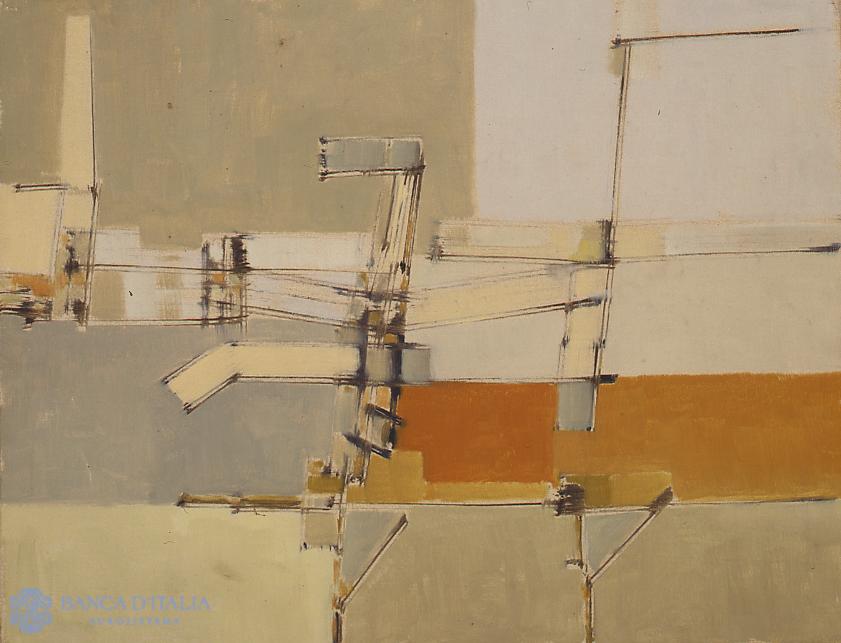Geometrical forms intertwine on the surface, occupying the entire area of the painting: again, it is the idea of a horizon around which the composition is arranged and develops that governs the spatial breakdown of the image. And it is this formal intention pursued here by the painter which distances the work from the notion of an academy of the abstract, the risks of which Romiti appears to sense. Even if it is not possible to recognize in the tangles of the marks - almost like the metal strips of a Meccano – any direct recollections of reality.
In the background are geometrical motifs of spaces, whites and greys, ochres and oranges: but while each one is clearly separate from the other, through those fields flows a sentiment, a shared atmosphere, which unites them. It was during this time, from 1953 to 1955, that Romiti listened most actively to the lesson offered by Morandi’s Tonalism, and by his division of space built from brief dissonances around a dominant colour. But shortly afterwards, before the end of 1955, and more definitively from 1956 onwards, Romiti began to disperse his objects – by then, his signs – in the convulsive space of the painting, as though a sudden gust of wind had spread them out there. This marked his renunciation of the centripetal force that up to then had confined his work to an ordering notion of horizon.
Sergio Romiti, Composizione
Composizione
Painting
20th century AD
Abstract

Artist
Date
1955
Material and technique
Oil on canvas
Measurements
51 x 65 cm
Compiler
Fabrizio D'Amico
